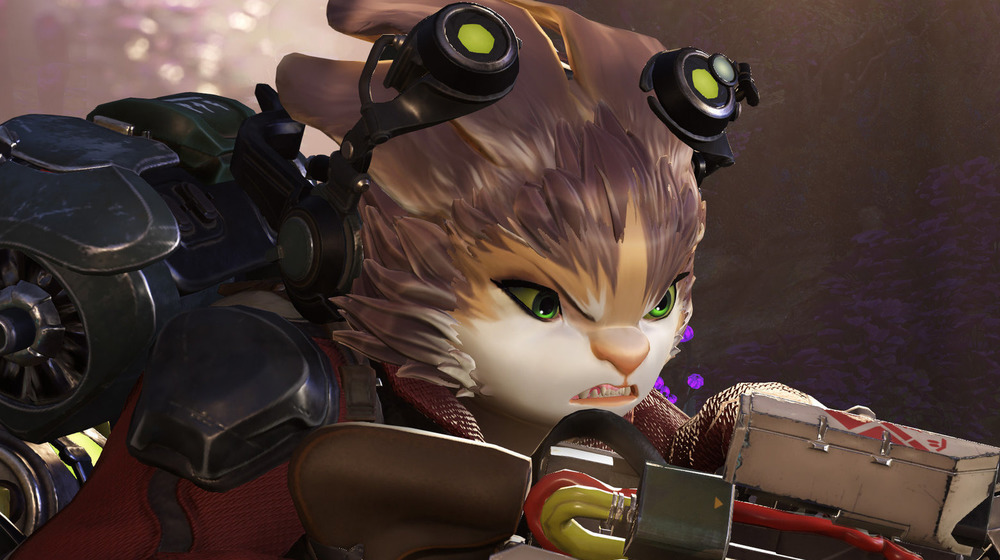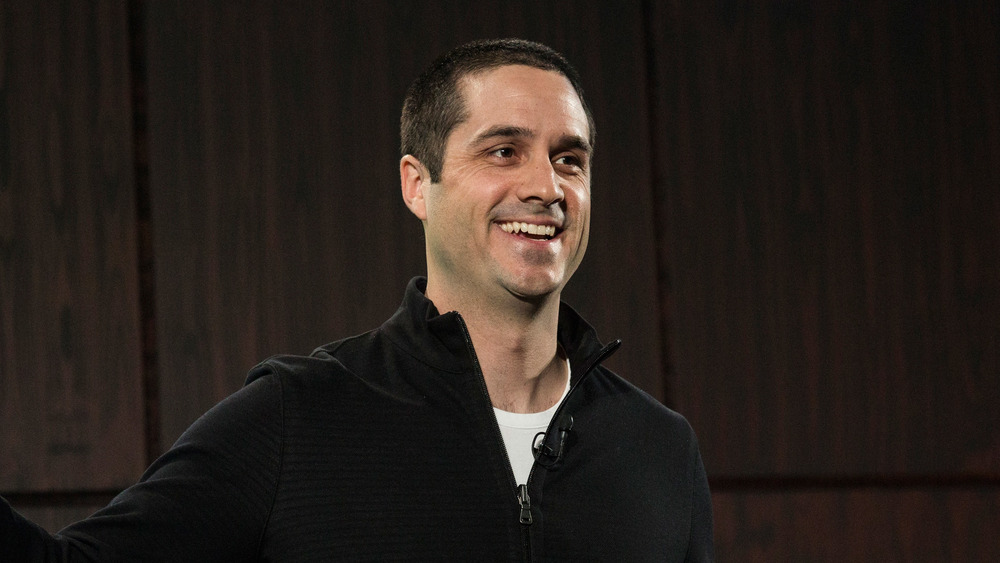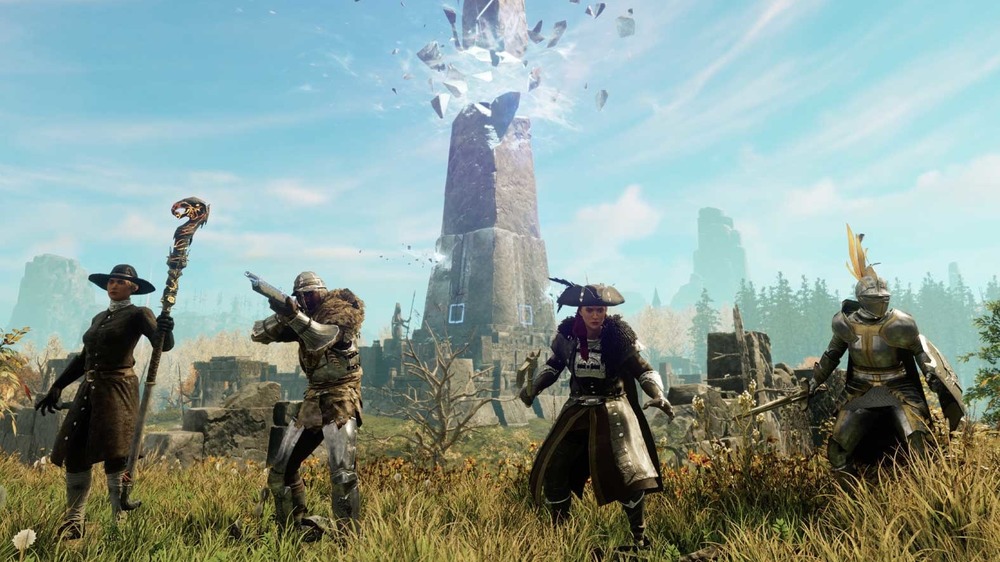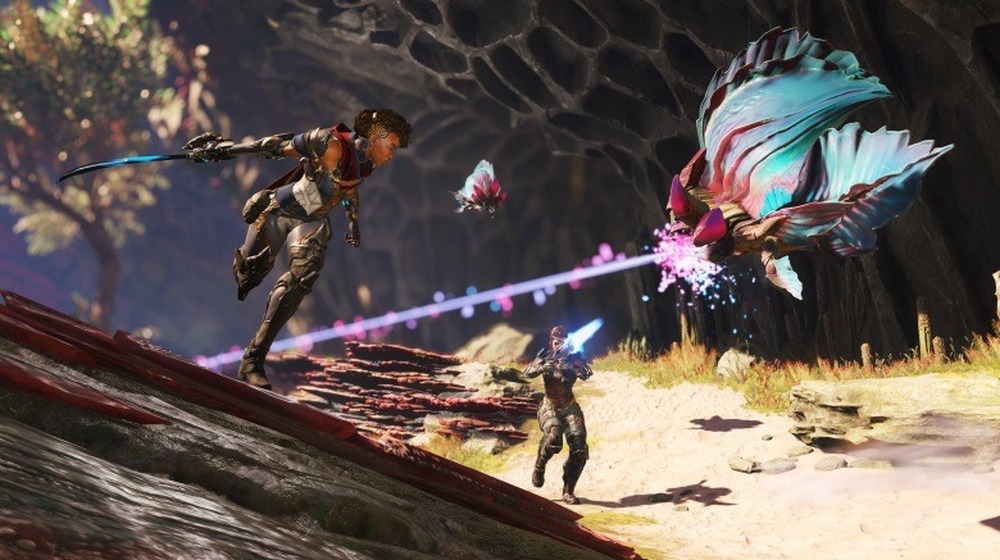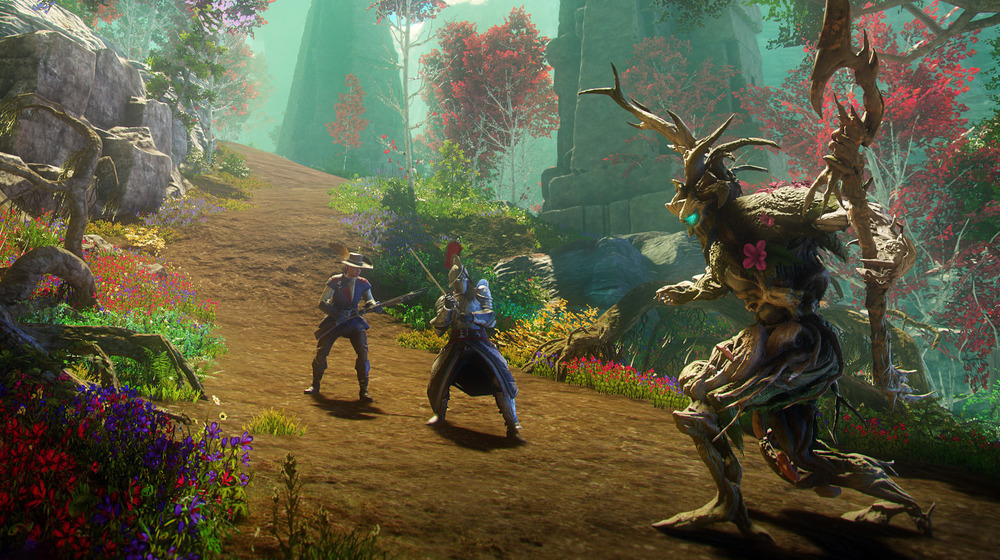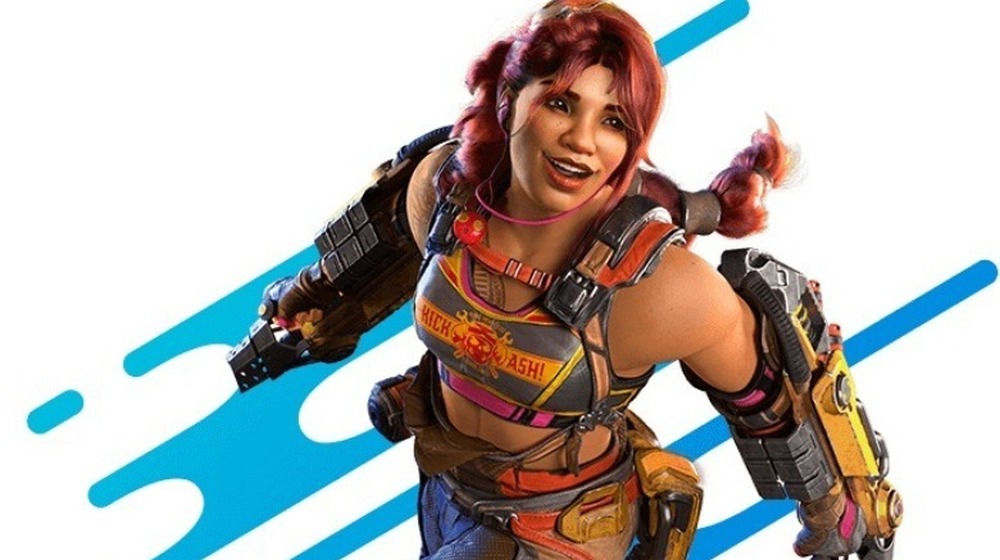The Shady Side Of Amazon Game Studios
We may receive a commission on purchases made from links.
In 2012, Amazon Game Studios quietly announced its formation with the release of Living Classics, a simple hidden object game for Facebook. That inauspicious start hid larger ambitions. Behind the scenes, Amazon founder Jeff Bezos made it clear that he was willing to invest heavily in the department, even if it only helped to drive Amazon Prime Subscriptions.
Gamers got their first taste of how seriously Amazon was taking their new initiative when the company shelled out nearly one billion dollars to purchase Twitch in 2014. Industry analysts started paying attention to the studios and industry icons the company had acquired over the past two years. With top talent and Amazon's seemingly limitless resources, some predicted that Amazon Game Studious was positioning itself to compete with the video game publishing industry's heavyweights.
Unfortunately, six years after those predictions, Amazon Game Studios has released only a handful of titles and has pulled two of its biggest games from stores. Here is the shady side of Amazon Game Studios, which has kept the company from true success for the better part of a decade.
Amazon Game Studio's director had never shipped a videogame
When Amazon Game Studios began to get off the ground in 2012, longtime Amazon executive Mike Frazzini was tapped to head the division. Frazzini had been a proponent for game development within Amazon Game Studios but had "no significant game industry experience before joining Amazon," according to Protocol.
This lack of experience manifested itself in some interesting ways at Amazon Game Studios. Frazzini, it seemed, had trouble understanding the difference "between hyper-polished conceptual footage and live gameplay." His main reference point for game development appeared to be a game from the 80s called R.B.I. Baseball, which he mentioned in meetings and presentations.
Frazzini revealed in an interview that he had brought "a lot of Amazon practices to making games." Those processes involve heavy data analysis and applying critiques from departments not even tangentially related to gaming, such as security. While effective in many areas of the company, these methods have seemingly failed to encourage creativity or yield results, because eight years after the founding of Amazon Game Studios, Frazzini has yet to ship a successful video game.
Bro culture created a stifling atmosphere
As Amazon Game Studios began to assert itself in the industry, key creatives from other prestigious projects were hired to develop games. Louis Castle of Command & Conquer, Kim Swift from Portal, and Richard Hilleman, designer of Madden, were brought on board to offer expertise.
Unfortunately, their talent and input was falling on deaf ears. A Bloomberg article reveals that instead of letting these visionaries run their studies in ways that had brought them success in the past, they were expected to "to adopt the Amazon way." Challenging any directives from Amazon leadership was discouraged, which "led some to prioritize job preservation over anything else." Neither Castle, Swift, nor Hilleman ever shipped a game for Amazon Game Studios, and none remain at the company.
A more serious issue arose from the blanket application of corporate culture in a male-dominated, "bro culture," atmosphere. The same Bloomberg article states, "four female game developers say their worst experiences of sexism in the industry were at Amazon." Those women reported having their ideas ignored in meetings, advancement opportunities closed to them after disagreements with senior leadership, and even being pushed out of the company.
Amazon Game Studios put too much stock in Lumberyard
While various factors hindered Amazon Game Studios from shipping the AAA titles the company had envisioned, one of the biggest issues was a mandate to utilize Amazon's in-house engine, Lumberyard. A Wired article about Amazon Game Studios notes that "across the company, employees are required to use in-house software for most tasks... no Gmail, no Trello, and, until recently, no Slack — only Amazon's custom-coded alternatives."
Amazon Game Studios had envisioned Lumberyard filling the same role in video game development. The engine, built on top of technology purchased from Crytek, made headlines in 2016 when Amazon released it publicly for free, allowing anyone to use it to program games for their service.
However, internally, it became clear that Lumberyard was causing more headaches than it was solving. One developer described developing the never released Breakaway with Lumberyard as feeling like "driving a train while the tracks were still being laid." Employees pointed to the slow progress of games designed with Lumberyard as a factor in a round of layoffs that occurred in 2019.
Multiple games pulled for quality issues
In 2016, Amazon announced its first three major games: New World, a massively multiplayer survival game set in a fictionalized America, Breakaway, a mythological brawler, and Crucible, a class-based shooter.
Nothing seemed to go right for any of those titles. Amazon Game Studios canceled Breakaway after failing to make progress on the game's core gameplay elements. New World experienced setbacks related to quality and sensitivity issues, including depictions of Native Americans deemed offensive by a tribal leader. The only one to launch, Crucible, received poor reviews, and the public reception of the game was so bad that Amazon Game Studios decided to remove the game from digital storefronts less than two months after it was released.
Crucible wasn't the only high profile Amazon Game Studios title delisted. The Grand Tour, a spinoff of the TV show of the same name, received some praise for its unique take on fusing a viewing and gaming experience, but also saw bad marks for its controls and driving experience. While fans offered some support, the overall response was so negative that Amazon pulled the game after a little over a year.
Amazon's most successful gaming investments are separate from Amazon Game Studios
It isn't only bad news for Amazon's gaming portfolio. After all, the decision to acquire Twitch was arguably a savvy move, even for a cool billion dollars. The streaming platform outplayed its most significant threat in years, Microsoft's Mixer, and remains the dominant platform for streaming, even attracting celebrities and politicians.
In addition, Amazon's Luna cloud gaming service has received a lot of positive attention, despite remaining in an early access, invitation-only program that started in late 2020. The success of both of those entities is mainly separate from the efforts of Amazon Game Studios. Bloomberg explains that while Bezos had envisioned game development and Twitch operating closely together, Twitch CEO Emmet Shear has been hesitant to assign his employees to projects outside of his organization.
Amazon Luna falls under the purview of the David Limp and the devices division, the same team behind the massively successful Fire, Echo, and Kindle projects. The Bloomberg article notes that "Luna offers more than two-dozen games, none of which are made by Amazon Game Studios." Maybe that's the secret to success.

